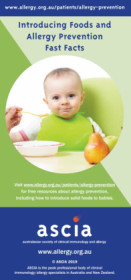FACT is a model of brief therapy that is a highly condensed version of a well-established longer-term treatment called Acceptance and Commitment Therapy. FACT uses acceptance and mindfulness strategies to help people transform their relationship with unwanted, distressing experiences, such as disturbing thoughts, unpleasant emotions, painful memories or uncomfortable physical symptoms.
Low or no data? Visit Zero Data then search for 'Healthify'. Click on our logo to return to our site and browse for free.
Focused Acceptance & Commitment Therapy (FACT)
Key points about FACT therapy
- Focused acceptance and commitment therapy, known as FACT, is a new model of brief psychological therapy that can be used by GPs, nurses and other health professionals to help people manage distressing emotions, memories and symptoms.
- On this page find information about FACT and resources to help you use FACT.

The solution becomes the problem
FACT does not attempt to change the content of these events, as it views efforts to change, suppress, eliminate or control them as problematic. It is the attempt to make those changes that becomes the problem in terms of anxiety and low mood.
Sometimes, attempts to control distressing thoughts, emotions, associations, memories and sensations (known as TEAMS) result in constrained and unworkable patterns of behaviour. The person becomes stuck and their minds begins to spin and become busy.
The problem-solving role of the mind is to make value judgements, which are great for avoiding traffic when crossing the road, but not so good if you are experiencing TEAMS.
When people become preoccupied with managing these uncomfortable experiences, they cannot attend to the immediate needs of their life situation. They can become rigid, ineffective problem solvers.
A new perspective
FACT teaches people to instead simply observe and accept these experiences, to see emotions as just emotions, memories as just memories, thoughts as just thoughts and sensations as just sensations.
It teaches that since you have no control over the arrival of uncomfortable internal experiences and the unpleasant physical experiences that are often associated with them, it's better to focus energy on what you can control, ie, your immediate behaviour or response. This may involve re-expanding the shrunken world that has developed in response to the distress.
The new perspective facilitates openness to these feelings rather than focusing on controlling them. To lead a psychologically flexible life, you need to value acceptance and willingness rather than control.
Connection with values
A second feature of FACT is its emphasis on helping people connect with personal values and engage in committed actions that are consistent with their core values. Instead of focusing on emotional control, FACT helps people focus on regaining a desired quality of life.
The commitment part of FACT involves taking actions that are values based, flexible and expanding in scope. When focused on living a values-based life, people are likely to have fewer symptoms.
A life that matters
The aim of FACT is to help clients live a rich, full and meaningful life and not specifically to remove symptoms. In brief, the FACT approach is to:
- accept what you cannot change (acceptance part) – you cannot undo your history but you can learn to hold it gently and not be defined by it
- become psychologically flexible (ie, learn to be aware and accepting of the pain that comes into your life while continuing to pursue what you value
- identify values and commit to following them (commitment part). This may require a bold move and ability to stay with any discomfort that shows up.
The first video is the demonstration video of an 11 minute consultation that demonstrates the seven step model for a first consultation. The second is a talk on FACT by Bruce Arroll (31 minutes) which explains FACT and how he uses it in his practice.
1. The seven step model
(Prof Bruce Arroll, NZ, 2017)
2. FACT by Bruce Arroll
(Prof Bruce Arroll, NZ, 2017)
For other videos of the same series, visit (F)ACT focused acceptance and commitment therapy(external link).
3. Work love play
(Prof Bruce Arroll, NZ, 2017)
4. Flipside of the hand of values and anxiety
(Prof Bruce Arroll, NZ, 2017)
For other videos of the same series, visit (F)ACT focused acceptance and commitment therapy part 2(external link).
| Resources | |
 |
Professor Bruce Arroll Visit Bruce's resources(external link) for handouts on:
|
 |
|
 |
Acceptance and commitment therapy with Professor Bruce Arroll(external link) The GP Show |
|
Focussed acceptance and commitment therapy(external link) Goodfellow elearning course |
|
|
FACT: Radical change is possible for patients in brief primary care visits(external link) Goodfellow webinar |
|
|
The evidence base for the first depression consultation in primary care(external link) |
|
|
|
|
|
In this series of 3 short videos, Professor Bruce Arroll explains what FACT is and how it can be used in general practice to help patients.
|
|
|
|
Bruce Arroll is a Professor of General Practice and Primary Health Care at The University of Auckland and a practising GP at Greenstone Family Clinic(external link) in Manurewa, South Auckland. |
 |
Acceptance & commitment therapy online courses with Dr Russ Harris |
Credits: Content adapted from Professor Bruce Arroll's website with permission
Reviewed by: Healthify editorial team. Healthify is brought to you by Health Navigator Charitable Trust.
Page last updated:



